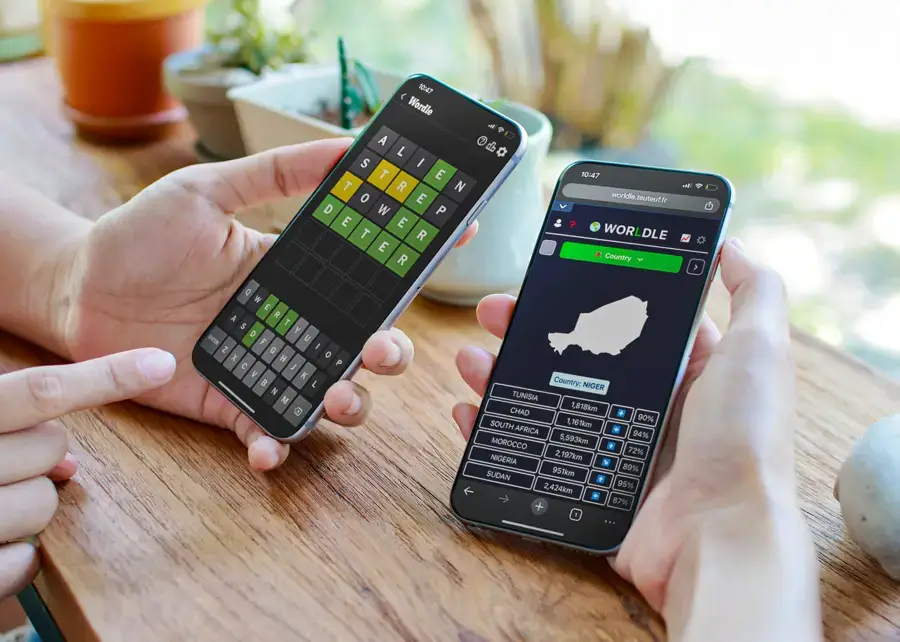Flagle vs. Wordle: What Sets These Flag-Inspired Games Apart

In the ever-growing world of online puzzle games, Wordle has established itself as a household name. However, its influence has sparked the creation of numerous spin-offs, one of the most notable being Flagle. While Wordle challenges players to guess a five-letter word, Flagle takes a unique approach by testing players’ knowledge of national flags. Both games fall under the category of daily puzzle games, but they have distinct mechanics, target audiences, and learning benefits. This article explores the differences between Flagle and Wordle, analyzing what makes them appealing and how they cater to different types of players.
The Basics of Wordle
Wordle is a simple yet highly addictive word-guessing game where players have six attempts to guess a five-letter word. Created by Josh Wardle in 2021, Wordle became an internet sensation, leading to its acquisition by The New York Times. The game’s core mechanics involve players entering a word and receiving color-coded feedback:
- Green indicates the correct letter in the correct position.
- Yellow means the letter is in the word but in the wrong position.
- Gray signifies that the letter is not in the word at all.
This system allows players to use logic and deduction to narrow down the possibilities. The simplicity of Wordle, combined with its daily challenge format, keeps players coming back for more.
The Basics of Flagle
Flagle follows a similar structure to Wordle but replaces words with flags. Instead of guessing a five-letter word, players attempt to identify a country based on fragments of its flag. The game starts with an obscured flag and reveals more sections with each incorrect guess. To help players, Flagle provides geographical hints such as the guessed country’s proximity to the correct answer.
The feedback system in Flagle differs from Wordle:
- Instead of colored tiles, Flagle gradually uncovers more of the flag with each guess.
- Players receive additional clues in the form of directional hints, such as the distance between the guessed country and the correct answer.
This makes Flagle an excellent tool for geography enthusiasts and anyone interested in learning more about world flags.
Key Differences Between Flagle and Wordle
1. Subject Matter
- Wordle: Focuses on language and vocabulary, testing players’ word knowledge and logical reasoning skills.
- Flagle: Centers around geography, challenging players to recognize national flags and their corresponding countries.
2. Gameplay Mechanics
- Wordle: Provides letter-based feedback with colors, guiding players towards the correct word by showing correct letters and placements.
- Flagle: Uses visual clues, revealing portions of a flag and providing proximity hints to guide players.
3. Learning Benefits
- Wordle: Improves vocabulary, spelling, and logical thinking.
- Flagle: Enhances geographical knowledge, flag recognition, and global awareness.
4. Difficulty Level
- Wordle: The difficulty depends on the word’s obscurity, but all words are typically common in English.
- Flagle: The challenge depends on the flag; widely known flags are easier, while those of smaller nations can be quite difficult.
5. Feedback System
- Wordle: Uses green, yellow, and gray indicators for letter placement.
- Flagle: Uses flag fragments and geographical distance clues to guide the player.
Who Enjoys Wordle?
Wordle appeals to individuals who enjoy wordplay, language-based puzzles, and logical deduction. It’s particularly popular among:
- English language learners aiming to expand their vocabulary.
- Casual gamers looking for a quick yet stimulating daily challenge.
- Puzzle enthusiasts who appreciate strategy-based games.
Who Enjoys Flagle?
Flagle attracts a different crowd, mainly geography buffs and those who enjoy visual-based quizzes. This includes:
- People interested in world geography and national symbols.
- Students or educators looking for an engaging way to learn flags.
- Players who enjoy incremental clue-revealing games.
The Social Aspect: Wordle vs. Flagle
Both games encourage social interaction, but in different ways:
- Wordle: Became a viral sensation due to its easy-to-share results. Players often post their daily results on social media using the recognizable colored grid format.
- Flagle: While not as widely shared as Wordle, it still fosters engagement by encouraging players to discuss flags and geography, often sparking conversations about different countries and their symbols.
The Role of Strategy in Wordle and Flagle
Both games require strategic thinking, but the approach differs:
- Wordle Strategy: Players use elimination tactics by choosing words with common vowels and consonants to maximize information in the fewest guesses.
- Flagle Strategy: Players often guess well-known flags first, then use proximity hints to refine their guesses. Recognizing color schemes and design patterns also plays a crucial role.
Educational Value: Wordle vs. Flagle
Both games offer educational benefits:
- Wordle: Strengthens language skills, helps with pattern recognition, and improves logical thinking.
- Flagle: Provides a fun way to learn country flags, geographical locations, and international awareness.
Why Wordle Became More Popular
Wordle’s mainstream success can be attributed to several factors:
- Simplicity: Its easy-to-understand mechanics make it accessible to all age groups.
- Social Media Shareability: The unique results grid made it highly shareable, leading to word-of-mouth promotion.
- Acquisition by The New York Times: This added credibility and sustained interest.
- Language Variations: Numerous language-based spin-offs helped expand its reach worldwide.
Why Flagle Has a Niche Audience
While Flagle is not as universally popular as Wordle, it has carved out a dedicated niche:
- Appeals to Geography Enthusiasts: People interested in flags and countries find it uniquely engaging.
- More of a Learning Tool: Unlike Wordle, which is more recreational, Flagle has stronger educational value.
- Less Shareability: Its format is not as visually compelling for social media sharing, which limits its viral potential.
Conclusion: Which Game Is Better?
The choice between Wordle and Flagle depends on personal preference:
- If you love words, logic, and language, Wordle is the better fit.
- If you enjoy geography, flags, and global knowledge, Flagle is the more exciting option.
Both games have their strengths and provide engaging, daily challenges that stimulate the brain in different ways. Whether you prefer the word-guessing strategy of Wordle or the flag-identification puzzle of Flagle, both games offer unique and rewarding experiences.



